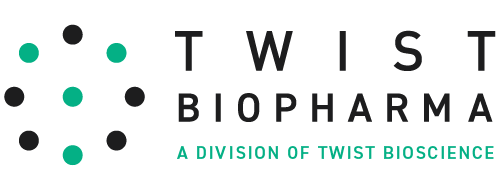Meet Dr. GPCR Summit Partners


Chaperoning G protein-coupled receptors
Thursday, 09/16/ 2021 @ 11:00 AM - EST
- Dr. Ya-Xiong Tao -
- Auburn University -
- Auburn, Alabama, USA -
Abstract
In this presentation, I will review how molecular, chemical, and pharmacological chaperones promote the folding of G protein-coupled receptors (GPCRs), membrane proteins that traverse the plasma membrane seven times (hence, are also called 7TM receptors). The polytopic structure of GPCRs makes the folding of GPCRs difficult and complex. Indeed, many wild-type GPCRs are not folded optimally, and defects in folding are the most common cause of genetic diseases due to GPCR mutations. Both general and receptor-specific molecular chaperones aid the folding of GPCRs. Chemical chaperones have been shown to be able to correct the misfolding in mutant GPCRs, proving to be important tools for studying the structure-function relationship of GPCRs. However, their potential therapeutic value is very limited. Pharmacological chaperones (pharmacoperones) are potentially important novel therapeutics for treating genetic diseases caused by mutations in GPCR genes that resulted in misfolded mutant proteins. Pharmacoperones also increase cell surface expression of wild-type GPCRs; therefore, they could be used to treat diseases that do not harbor mutations in GPCRs. I will highlight our own work on the pharmacological chaperones for the melanocortin-4 receptor. Recent studies have shown that indeed pharmacoperones work in both experimental animals and patients. High-throughput assays have been developed to identify new pharmacoperones that could be used as therapeutics for a number of endocrine and other genetic diseases.
About Dr. Ya-Xiong Tao
Ya-Xiong Tao is a tenured Professor of Physiology at Auburn University College of Veterinary Medicine in Alabama, USA. He obtained his bachelor's degree from Huazhong Agricultural University, MS degree from Sun Yat-sen University mentored by Academician Haoran Lin, and his Ph.D. degree from the Institute of Zoology of Chinese Academy of Sciences mentored by Academician Chih-Ye Chang. He did post-doctoral research at the University of Louisville and the University of Iowa before joining the faculty at Auburn University. His research focus is on the physiology, pharmacology, and pathophysiology of G protein-coupled receptors, including gonadotropin receptors and neural melanocortin receptors. Since 2003, he has been systematically studying melanocortin-3 and -4 receptors (MC3R and MC4R) that regulate energy homeostasis, including the molecular defects of naturally occurring mutations and potential therapeutic strategies as well as biased signaling. He was the first to demonstrate that small-molecule ligands can serve as pharmacological chaperones to correct the misfolding in naturally occurring mutations in the MC4R. He has also expanded his studies on pig, dog, and fish receptors. He has published 125 papers in SCI-indexed journals, with two comprehensive review articles in Endocrine Reviews and one in Physiological Reviews. He has received 4469 citations with an h-index of 37 on Google Scholar. He has (co-)edited nine volumes published by Elsevier and Springer. He is serving on the editorial boards of several journals, including Biochimica et Biophysica Acta – Molecular Basis of Diseases and Frontiers in Endocrinology. He has served as a peer reviewer for 90 journals. He has reviewed grants for multiple agencies, including the American Diabetes Association, American Heart Association, and the Italian Ministry of Health. He has taught several courses for undergraduate, graduate, and veterinary students, including Physiology, Receptorology, Endocrinology, Molecular Endocrinology, and Genomics, and Personalized Medicine. He received several awards, including the Travel Grant Award from the Endocrine Society in 2003 and 2006, the Outstanding Graduate Teaching Award from Auburn University College of Veterinary Medicine in 2011, The Zoetis Award for Veterinary Research Excellence in 2016, and Professor of the Year Award from Auburn University Honors College in 2021.
Author list and affiliations
- Ya-Xiong Tao, Auburn University College of Veterinary Medicine




























